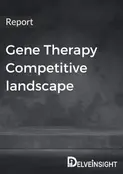Gene therapy stands at the forefront of modern medicine, offering a revolutionary method to treat diseases by modifying genetic material directly within patients' cells. This cutting-edge medical strategy has transitioned from theoretical research to practical application, with multiple treatments now advancing toward patients and several already in clinical use.
Comprehensive Development Activity
The gene therapy pipeline showcases extensive activity across diverse medical fields:
Oncology Innovations: Chimeric antigen receptor T-cell (CAR-T) therapies represent a major advancement, engineering patients' immune cells to combat cancer. These treatments are moving through multiple development stages, focusing on blood-related cancers while investigating applications for solid tumors.
Inherited Disease Treatments: Developers are creating therapies for hemophilia, sickle cell disease, and beta-thalassemia through various methodologies:
-
Adeno-associated virus (AAV) vectors transporting corrective genetic material
-
CRISPR-based technology enabling direct modification of harmful mutations
-
Lentiviral vectors facilitating cellular modifications outside the body
Vision Disorders: Genetic retinal conditions attract significant research attention because the eye offers an ideal, protected setting for therapeutic delivery. Several programs are advancing for conditions like Leber congenital amaurosis and retinitis pigmentosa.
Brain and Nervous System Disorders: Though delivering treatments across the blood-brain barrier poses challenges, investigators are developing therapies for spinal muscular atrophy, Duchenne muscular dystrophy, and multiple lysosomal storage disorders.
Worldwide Research Activity
Globally, hundreds of gene therapy clinical trials are underway across all developmental phases. Early-stage investigations (Phase I/II) comprise the majority of current research, establishing safety parameters and identifying ideal dosing approaches. These studies encounter distinctive challenges including production scalability, immune reactions to viral delivery systems, extended monitoring protocols, and identifying eligible patients for rare diseases.
Advanced-stage investigations (Phase III) are moving forward for several encouraging candidates, especially in hemophilia and specific metabolic conditions where clinical measurements are clearly established.
Key Market Participants
The commercial environment features a varied mix of organizations:
Major Pharmaceutical Corporations: Leading pharmaceutical enterprises have expanded into this field through acquisitions, collaborative agreements, and internal research initiatives, providing crucial production infrastructure and regulatory proficiency needed for market introduction.
Dedicated Biotechnology Organizations: Many gene therapy companies specialize entirely in creating these innovative therapeutics, frequently developing novel delivery systems or editing platforms. Many focus on particular disease categories or unique technological approaches.
Research and Academic Centers: Universities and research facilities continue providing fundamental contributions to early-stage discovery and initial validation studies, often collaborating with commercial partners for clinical progression.
Approved Therapeutic Products
Multiple gene therapy drugs have obtained regulatory approval, demonstrating the field's viability:
-
CAR-T treatments for certain blood malignancies
-
Interventions for specific inherited vision disorders
-
Solutions for spinal muscular atrophy
-
Newly authorized treatments for sickle cell disease
Current Development Obstacles
The field works to overcome several significant barriers:
-
Complex and expensive manufacturing processes
-
Maintaining sustained expression from introduced genetic material
-
Controlling immune responses to delivery vectors or altered cells
-
Developing suitable regulatory guidelines for innovative treatment modalities
-
Proving long-term safety throughout patients' lives
Future Innovation Pathways
Industry leaders are investigating advanced methodologies including systemically delivered in vivo CRISPR editing, alternative non-viral delivery approaches, base and prime editing technologies offering greater precision, and integrated strategies combining genetic modifications with complementary treatment methods.
The sector continues rapid expansion with frequent announcements of new trial launches targeting an ever-widening spectrum of diseases. This vigorous development demonstrates increasing industry confidence, as therapies for conditions once deemed untreatable progress toward clinical availability. With accumulating long-term evidence from existing studies and additional companies joining the field, the therapeutic environment undergoes continuous transformation.
Latest reports offered by Delveinsight
Chemotherapy-Induced Peripheral Neuropathy Market | Cholangiocarcinoma Market | Chronic Constipation Market | Chronic Granulomatous Disease Market | Chronic Venous Ulceration Market | Cluster Headaches Market | Coagulation Factor Deficiency Market | Cognitive Impairment Associated with Schizophrenia Market | Complex Regional Pain Syndrome Market | Complicated Intra-Abdominal Infections Market | Concussions Market Size | Congenital Hyperinsulinism Market | Contact Dermatitis Market | Convulsive Seizures Market | Corneal Dystrophy Market | Coronary Occlusion Market
About Delveinsight
DelveInsight is a leading healthcare-focused market research and consulting firm that provides clients with high-quality market intelligence and analysis to support informed business decisions. With a team of experienced industry experts and a deep understanding of the life sciences and healthcare sectors, we offer customized research solutions and insights to clients across the globe. Connect with us to get high-quality, accurate, and real-time intelligence to stay ahead of the growth curve.
Contact Us
Kanishk



